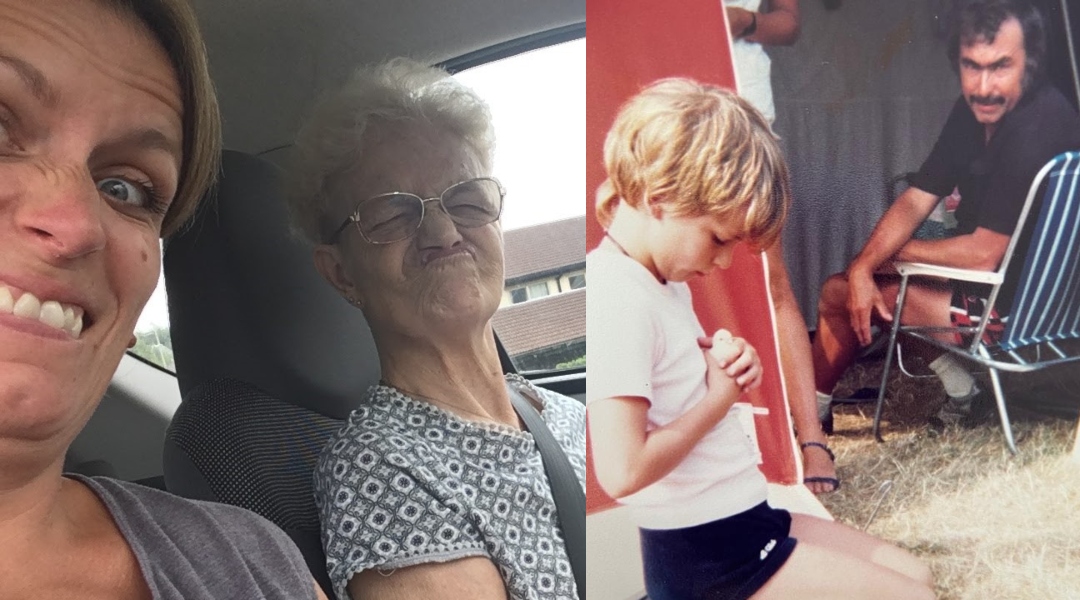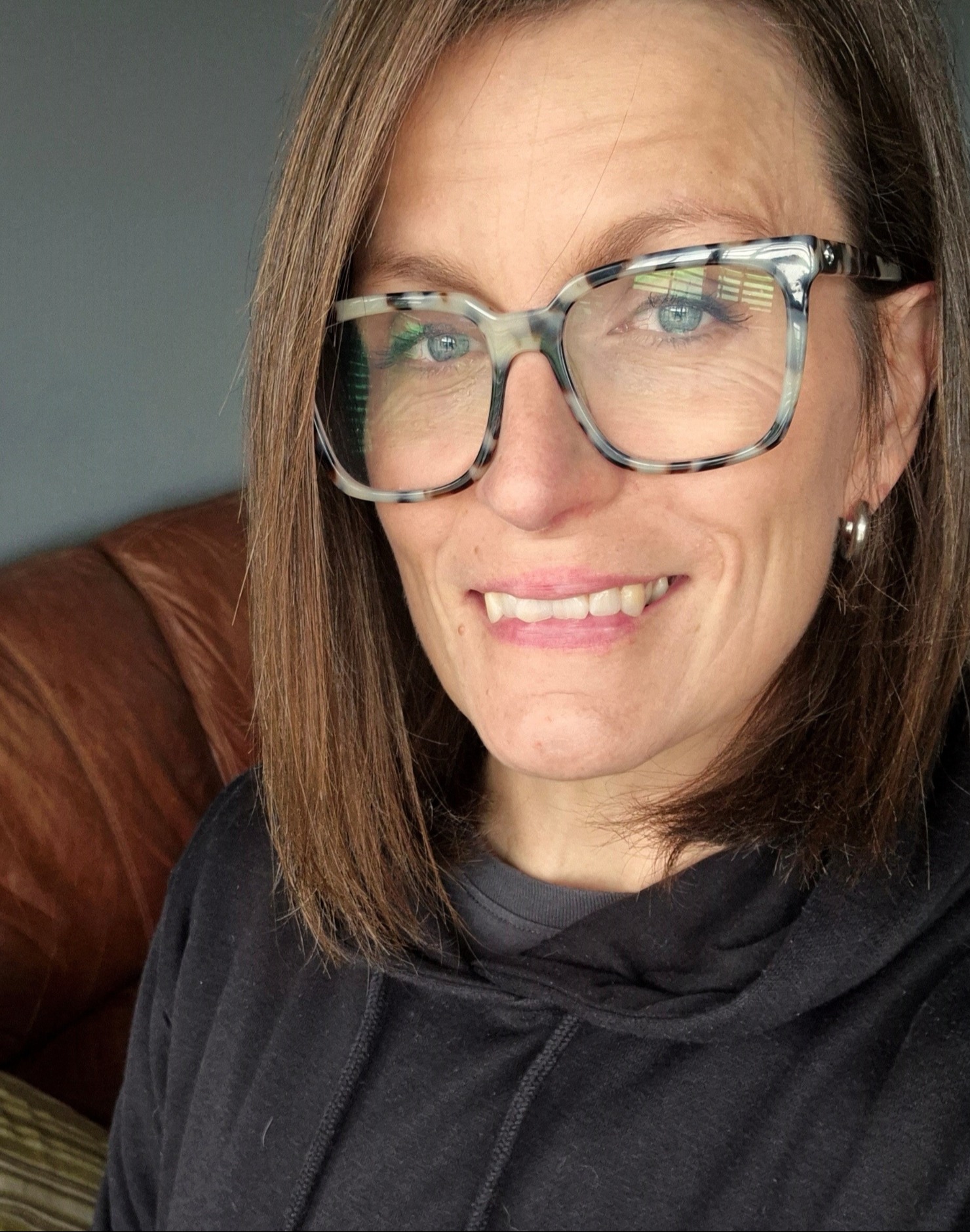“I’m glad to be doing something that links me to mum and dad” – Emma’s story
Emma Godden, 51, has lost both her parents to cancer. Her dad, Arthur, passed away in 1986 when she was just 13 and her mum, Pauline, died in 2018. She reveals why she hopes to make a difference for cancer patients in the future by running this year’s London Marathon to fund our vital research.

Image: Emma with her mum (left) and as a child, with her dad (right)
Dad was first diagnosed with lung cancer in 1981, just before my eighth birthday. I remember him being away from home for long periods of time for treatment, but his illness was not openly spoken about around me. I was aware that he had cancer, but it all seemed like a big secret and nobody ever spoke about it at all in my presence. I suspect it was their way of trying to protect me.
The first treatment he had was surgery to try and remove the tumour, but they discovered it was too close to his heart, so were unable to remove it. He had chemotherapy and radiotherapy, which were initially deemed successful. But his cancer returned. He suffered two relapses, the last in 1985 when the cancer came back in both lungs. While he never lost his hair, he did not cope well with chemo. It made him very unwell and affected his sense of smell.
In June 1986, his cancer had spread and he suffered a massive stroke, causing complete paralysis on his right hand side. He lost his hearing and sight and was unable to speak. He passed away in hospital on 14 August at the age of 50. I had just turned 13 and I remember it being the middle of the summer holidays. The day he died, I went on a day trip to Brighton beach. The council arranged excursions throughout the holidays for all the schools back then. I was very glad that Mum let me go that day. I chose not to attend dad’s funeral because I knew it would be too painful. I didn’t want to see the adults upset and it is a decision I have never regretted.
‘A scan spotted a shadow on her liver’
That all feels like a lifetime ago now. But losing a parent as a child and then again as an adult are two very different experiences. When my mum was diagnosed with liver cancer in 2018, it was very difficult, particularly having a family myself and now living 100 miles away.
My mum had always had issues with her bladder and during a scan to investigate a cyst on her bladder, a shadow was spotted on her liver. She had a third of her liver removed, but the cancer had already spread and she was too frail for chemo. She was a tiny woman and the disease took its toll on her. She was in and out of hospital and eventually passed away while in hospice care, a few months after her diagnosis at the age of 75.
I remember going to visit her about 10 days before she died. She was sitting up in bed, laughing and joking, and eating jelly and ice cream. Looking back, I feel as if she made every effort that day to leave me with some good memories. The rest of the time, it was extremely hard to see her – it seemed as though she was wasting away before our eyes and I found this very traumatic. I didn’t want to see her like that and to be honest, when my brother called to tell me that she had passed away, I felt a sense of relief.
‘Cancer affects so many lives’

My experiences with my parents’ deaths have had a big impact on me. I have dealt with them by just getting on with life. After my dad died, my mum carried on and focused on bringing me up as my siblings are much older than me. She just got on with things and that is what I have always tried to do. Looking back now, I would say that my dad’s death shaped me, but it did not affect me because my mum shielded me from her grief. I'm very grateful for that, but it does make me sad now.
A few days after she died, I thought about how she had coped in the months after dad died, and I knew that that was how I would cope now too. I couldn't fix this, I couldn’t do anything to change the outcome, so I just had to follow my mum’s lead and get on with life. It hasn't always been easy but I think she'd be proud. She would also be so incredibly proud to know that I'm running the London Marathon - she was huge sports fan and would always watch the race on television.
Cancer affects so many lives and the ripple effects are enormous. My experiences have made me want to do something that will make a difference to other families going through what I have been through.
I have dipped in and out of running races over the years. I have always been active and running has been a part of that. About 10 years ago, I ran my first half marathon, and I have done a few since. In 2023, I ran the virtual London Marathon, but I am very excited to be running the mass event this year. It is my first real marathon and I am very much looking forward to it.
I have already raised over £2000 for The Institute of Cancer Research and I want to see how much more I can get to. I was very determined to run specifically for a charity that works towards cancer research – because of my family’s experiences, it is something I feel strongly about. And I am glad to be doing something that links me to mum and dad.
Back when my dad was diagnosed, the statistics were that one in four people would get cancer in their lifetime. Now that figure is one in two. That’s why cancer research is so vital. Who knows what will happen in the years to come, but more research is needed to improve outcomes for the very many people who will be affected by this disease in the future. So much has been discovered in the years since my dad passed away – perhaps he would have had a very different experience or outcome if he had been treated today.
To support Emma and raise funds for our vital research, visit Emma's fundraising page.